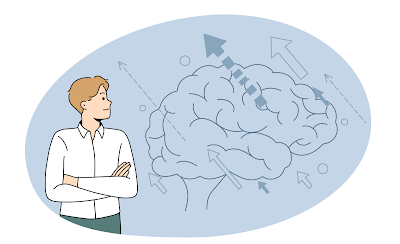In this post Dan Degerman presents a paper, "Epistemic injustice, naturalism, and mental disorder: on the epistemic benefits of obscuring social factors", recently published in Synthese. A version of this post appeared on the Imperfect Cognitions blog on 18th October 2023.
Naturalistic understandings that frame human experiences and differences as biological dysfunctions constitute a major source of epistemic injustice in disease and disability, according to many philosophers.
Epistemic injustice refers to injustices committed against people in their capacity as knowers. This occurs, for example, when someone is disbelieved because of their social identity or when a lack of suitable interpretive resources means that someone cannot make their experiences intelligible to themselves or others. Critics have argued that naturalistic understandings of human experiences and differences can lead to both kinds of epistemic injustice because they tend to obscure the social factors involved in causing those experiences and differences.
Though such understandings can indeed contribute to epistemic injustice, I think the epistemic benefits they can offer people vulnerable to epistemic injustice have been overlooked.
Consider an apparent exemplar of a naturalistic understanding, namely, the neurobiological understanding of mental disorder. According to that understanding, the key cause of the disorder is some dysfunction in the individual’s brain.
Critics of the neurobiological understanding of mental disorder argue that it prevents people from considering the range of possible factors that might contribute to their often distressing experiences. That is because it decontests the experiences involved, making alternative understandings that focus more on social factors seem irrelevant. Empirical research on what has been called the seductive allure effect of neuroscience indicates the critics are right. But what those critics generally fail to appreciate is that for some people with mental disorder, this is an epistemic feature rather than a bug.
After all, people with psychiatric diagnoses often struggle to get others to take their distress and needs seriously. For instance, participants in a recent ethnographic study by Rebecca Lane recounted how their efforts to discuss their bipolar disorder had been met with trivializing responses. Those responses drew on the contested status and alternative understandings of bipolar disorder to make it appear less serious. As Jake Jackson has argued, such trivialization can constitute and perpetuate epistemic injustices against people diagnosed with mental disorder.
The decontesting capacity of the neurobiological understanding of mental disorder can help people with psychiatric diagnoses avoid trivialization and associated epistemic injustices. At least, that is what the experiences of some participants in the Lane’s study suggest. For example, one of them said:
[W]ith bipolar[,] people generally think oh he’s lazy—it’s fashionable—a lot of people get misdiagnosed and you know—but if I say brain disorder and my neurotransmitter[s] don’t do what they’re supposed to… people just leave it like that. (pp. 161-2)
This person has effectively deployed the neurobiological understanding of bipolar disorder to decontest his suffering and, thereby, avoid epistemic injustice.
Their testimony is not evidence that would-be trivializers abandon their trivializing beliefs when met with a neurobiological understanding of mental disorder. But it is evidence that such an understanding can prevent outright dismissal and that some people with mental disorder value that function highly.
I’m not trying the argue that the neurobiological understanding of mental disorder or a naturalistic understanding of disease and disability more generally is unproblematic. Some research shows that people who endorse a neurobiological understanding of mental disorder are more likely than others to endorse stigmatizing claims about people with a psychiatric diagnosis. So we should think carefully about how and when that understanding is deployed.
But, if we are serious about addressing the epistemic injustices that people with psychiatric diagnoses suffer, we cannot simply ignore first-hand testimonies about the value that naturalistic understandings of mental disorder have for those people. Doing so and simply pushing ahead with projects to undermine those understandings risks exacerbating the very problem we are trying to solve.

No comments:
Post a Comment
All comments are moderated.